Table of Contents
ToggleIn the fast-paced world of healthcare, global medical affairs is the unsung hero, quietly ensuring that life-saving innovations reach those who need them most. Think of it as the bridge between science and the real world—where researchers, clinicians, and patients meet for a crucial chat over coffee (or maybe just a virtual meeting).
As the industry evolves, understanding global medical affairs becomes essential. It’s not just about regulatory compliance; it’s about crafting compelling stories that resonate across cultures and borders. So grab your passport, because navigating this landscape is like embarking on a thrilling adventure, complete with unexpected twists and turns. Whether you’re a seasoned pro or just curious, diving into global medical affairs promises to be informative, engaging, and maybe even a little fun.
Overview of Global Medical Affairs
Global medical affairs serve as a bridge between scientific research and practical application in healthcare. This field encompasses a wide range of activities aimed at facilitating safe and effective product usage. Professionals in this area focus on generating scientific evidence and communicating relevant information to healthcare practitioners, patients, and stakeholders.
Collaboration with internal departments is essential for success in global medical affairs. Teams partner with clinical development, regulatory affairs, and commercial divisions to ensure coordinated efforts across the organization. Sharing knowledge and insights across these teams enhances product understanding and market access.
Engagement with external stakeholders constitutes a significant part of this role. Establishing strong relationships with key opinion leaders, healthcare professionals, and patient advocacy groups is crucial. These relationships facilitate information exchange and foster trust in the brand and products offered.
Data generation remains a priority within global medical affairs. Conducting post-marketing studies and real-world evidence initiatives are common practices. Such data support therapeutic claims, enhance product positioning, and ultimately improve patient outcomes.
Compliance with evolving regulatory requirements shapes the landscape of global medical affairs. Adherence to guidelines from organizations like the FDA and EMA ensures that companies navigate the complexities of drug development and marketing effectively. Staying updated on changes in regulations and scientific advances is vital for maintaining credibility and trust in communication efforts.
Lastly, the adaptability of global medical affairs professionals plays a key role in facing industry challenges. Navigating the dynamic healthcare environment requires ongoing learning and strategic thinking. This capacity for agility allows practitioners to thrive despite uncertainties and maintain their focus on improving patient care.
Key Functions of Global Medical Affairs
Global medical affairs encompasses various key functions integral to the success of healthcare products. These functions focus on bridging scientific knowledge with practical applications, supporting both organizations and patients.
Medical Strategy Development
Medical strategy development forms a cornerstone of global medical affairs. Crafting robust strategies ensures alignment with company objectives and scientific priorities. Teams analyze data and market needs to inform product positioning and messaging. Effective strategies capitalize on real-world evidence, enhancing the credibility of therapeutic claims. They also address uncertainties in clinical practice, guiding healthcare professionals on data-driven treatments. Such development leads to clear, impactful communication tailored to diverse audiences.
Cross-Functional Collaboration
Cross-functional collaboration enhances the efficacy of global medical affairs. Teams work closely with clinical development and regulatory affairs to align scientific findings with compliance requirements. Engaging with marketing and access teams ensures that medical strategies resonate in the marketplace. Collaborative efforts with external stakeholders, including key opinion leaders, strengthen trust and knowledge sharing. Proactively identifying gaps in information helps align goals across functions. Successful collaboration cultivates an environment where scientific data translates into improved patient outcomes and healthcare solutions.
Importance of Global Medical Affairs in Healthcare
Global medical affairs serve as a critical link between scientific research and practical application in healthcare. This field extends beyond mere regulatory compliance, focusing on creating impactful narratives that engage diverse audiences. Understanding its role facilitates better communication with healthcare practitioners and patients.
Data generation takes precedence, particularly through post-marketing studies and real-world evidence initiatives. These processes support therapeutic claims while contributing to improved patient outcomes. Engaging with external stakeholders, such as key opinion leaders and patient advocacy groups, enhances trust and promotes information exchange in the healthcare landscape.
Collaboration with internal departments like clinical development and regulatory affairs is essential for enhancing product understanding. Aligning medical strategy development with company objectives ensures that scientific priorities remain front and center. Robust strategies emerge from leveraging real-world evidence, guiding healthcare professionals in decision-making.
Adapting to evolving regulatory requirements from organizations like the FDA and EMA proves crucial. Continuous updates on regulations and scientific advances maintain credibility in the industry. Professionals in global medical affairs must embrace adaptability and strategic thinking to tackle industry challenges effectively.
Working closely with cross-functional teams amplifies the effectiveness of global medical affairs. Each department, whether it’s clinical development, regulatory affairs, or marketing, plays a vital role in translating scientific data into healthcare solutions. As a result of this collaboration, patient care improves, and healthcare solutions become increasingly efficient.
Challenges in Global Medical Affairs
Navigating global medical affairs involves multiple challenges that impact effectiveness and efficiency. These challenges require a focused strategy to address them appropriately.
Regulatory Compliance
Evolving regulatory frameworks present significant hurdles in global medical affairs. Compliance requires continuous monitoring of guidelines set forth by agencies like the FDA and EMA. Organizations must adapt swiftly to ensure they meet these dynamic standards. Regularly updating internal processes enhances adherence to regulations. Training for teams on compliance best practices strengthens credibility. Failure to comply can result in severe ramifications, including financial penalties and reputational damage.
Data Management and Integration
Managing vast amounts of data poses another challenge. Organizations face difficulties in integrating data from various sources such as clinical trials and post-marketing studies. Effective data management systems are essential for synthesizing information. Analysis of real-world evidence generates insights that inform medical strategies. Streamlining data processes fosters collaboration among internal departments. Competent data integration directly impacts the quality of therapeutic claims. Achieving this integration enhances decision-making and improves overall patient care.
Future Trends in Global Medical Affairs
Technological advancements play a significant role in shaping global medical affairs. Digital health tools, including telehealth and AI-driven analytics, enhance data collection and patient engagement. These innovations streamline communication between healthcare providers and patients.
Regulatory environments are evolving. Organizations like the FDA and EMA update guidelines frequently, prompting professionals to stay informed about compliance and quality standards. Continuous education becomes essential for maintaining adherence to these dynamic regulations.
Real-world evidence generation is increasing in importance. Efforts to integrate patient-reported outcomes with clinical data support therapeutic claims. This approach not only informs healthcare providers but also enhances patient trust.
Global collaboration is becoming more prominent. Medical affairs teams must work closely with regional stakeholders to address varying regulatory landscapes. Engaging local experts ensures that strategies are both culturally relevant and compliant with local protocols.
Data privacy concerns are rising. As the healthcare sector leverages data for decision-making, safeguarding patient information remains critical. Organizations must implement robust security measures to protect sensitive information.
Patient-centric approaches are gaining traction. Understanding patient needs and preferences drives product development and communication strategies. Listening to patients fosters trust and improves health outcomes.
Finally, adaptive strategies are necessary for navigating industry changes. Professionals working in global medical affairs must demonstrate agility in response to market demands and scientific discoveries. A proactive mindset will help address challenges while advancing patient care initiatives.
Global medical affairs stands as a cornerstone of the healthcare industry. Its ability to connect scientific research with practical application is essential for enhancing patient outcomes. As the landscape continues to evolve professionals must embrace adaptability and collaboration to navigate challenges effectively.
The focus on real-world evidence and patient-centric strategies will drive future innovations. By prioritizing communication with diverse stakeholders and staying informed about regulatory changes, global medical affairs teams can foster trust and improve healthcare solutions. This dynamic field offers a rewarding journey for those committed to advancing patient care and shaping the future of medicine.






